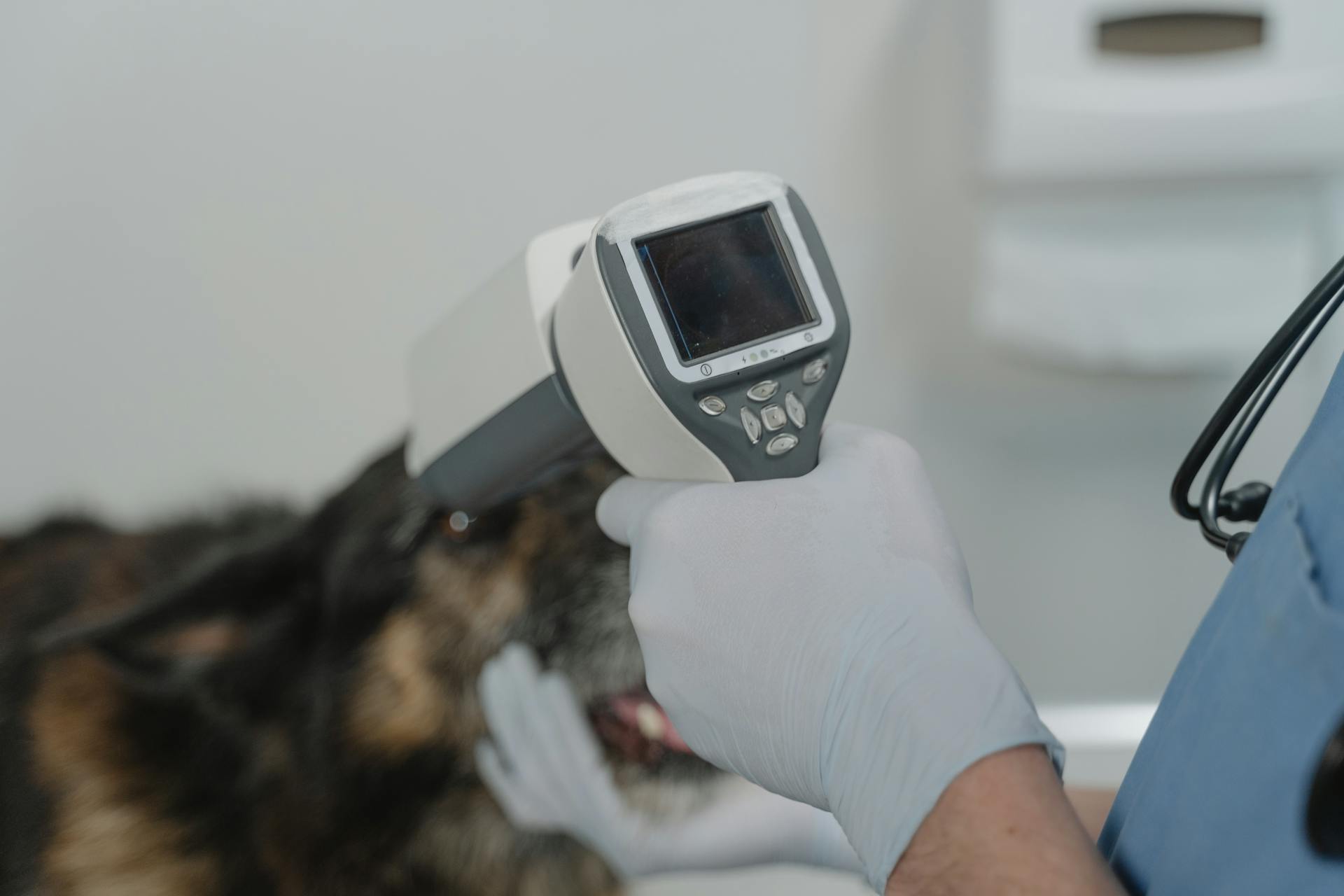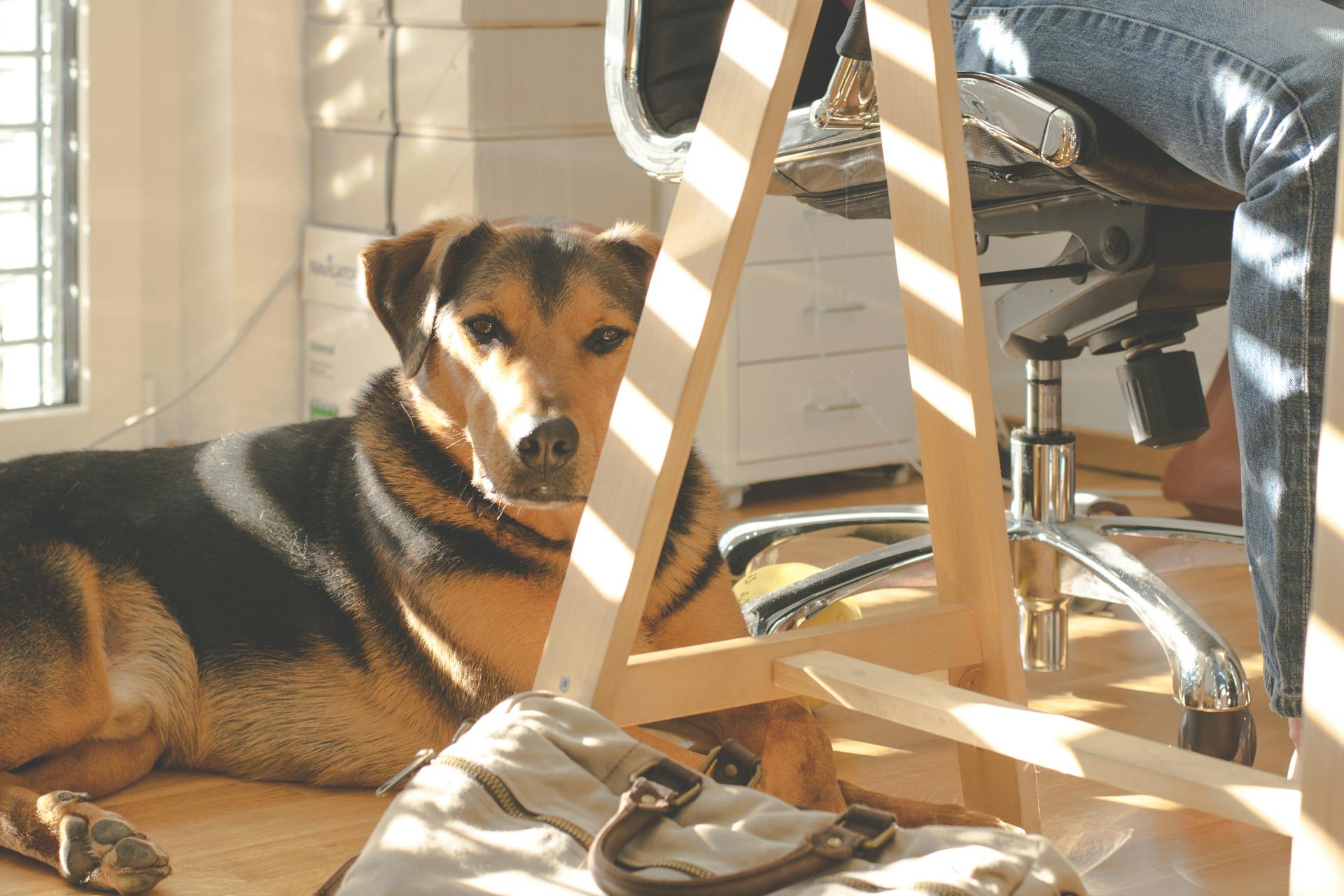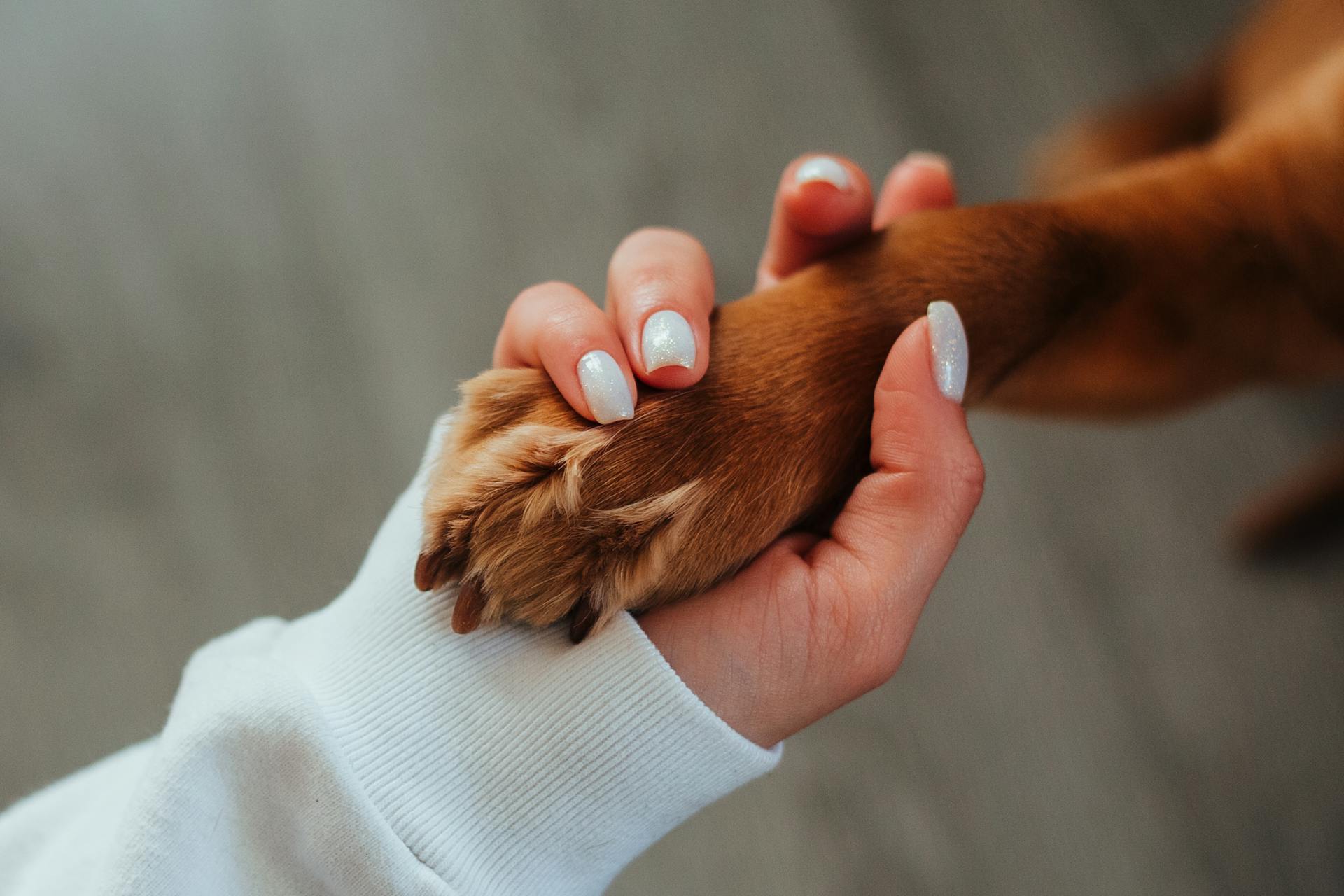
Sheepadoodles are a cross between an Old English Sheepdog and a Poodle, and like any other breed, they can be prone to certain health issues. Hip dysplasia is a common problem in Sheepadoodles, as it is in many large breeds, due to their tendency to inherit the condition from their parent breeds.
Sheepadoodles can also be susceptible to eye problems, such as Progressive Retinal Atrophy (PRA), which can lead to blindness if left untreated. Regular eye exams can help detect this condition early on.
To prevent health issues in Sheepadoodles, it's essential to keep them at a healthy weight through a balanced diet and regular exercise. This can help reduce the risk of hip dysplasia and other weight-related problems.
Health Issues
Sheepadoodles are generally a healthy breed, but like all breeds, they can be prone to certain health issues. These issues can be inherited from their parent breeds, the Old English sheepdog and the poodle.
Some of the health conditions that Sheepadoodles can be prone to include hip dysplasia, a genetic condition that affects the hip joint and can lead to discomfort and reduced mobility. Bloat, or gastric torsion, is another serious condition that can occur in deep-chested dogs like Sheepadoodles.
Regular grooming is essential to prevent skin and coat problems in Sheepadoodles, whose curly coats can easily become matted and cause skin issues. Feeding your Sheepadoodle well and visiting the vet regularly can also help prevent many of these health problems.
Here are some specific health issues that Sheepadoodles can be prone to:
- Cataracts
- Von Willebrand’s disease
- Mitral valve dysplasia
- Entropian
- Ectropian
- Demodectic mange
- Diabetes
- Addison’s disease
- Sebaceous adenitis
- Bloat (gastric torsion)
- Hip dysplasia
It's worth noting that many of these health issues can be prevented or managed with proper care and attention. By choosing a good breeder, feeding your Sheepadoodle well, and visiting the vet regularly, you can help ensure that your furry friend lives a long and healthy life.
Dog Nutrition
When choosing a dog food for your Sheepadoodle, consider their size and activity level. A large-breed puppy food is recommended for Sheepadoodle puppies to ensure best bone health.
As your Sheepadoodle grows, choose a food appropriate for their life stage. This may mean switching to an adult food or a senior food.
Feeding your Sheepadoodle twice a day is recommended, with a feeding schedule of three or four mealtimes for puppies before switching to twice a day as an adult.
To prevent bloat, which is a risk for Sheepadoodles, feed them multiple small meals throughout the day rather than one large meal. This can help reduce the risk of GDV.
Restrict exercise before and after meals, and try to reduce stress at mealtime. Elevated dog bowls can also contribute to bloat, so it's best to avoid them.
To determine how much to feed your Sheepadoodle, follow the measurement guidelines on the label of an AAFCO-approved food. Pay attention to your dog's body size and composition throughout life to ensure they're getting the right amount of nutrition without too many added calories.
Treats should be included in your Sheepadoodle's daily calorie count, so be sure to factor them into their overall diet.
Some supplements, like glucosamine hydrochloride and omega-3 fatty acids, may be beneficial for Sheepadoodles, particularly those prone to hip dysplasia. Consult with your veterinarian to determine the best course of action.
A typical Sheepadoodle's daily food intake is around 1 to 2.5 cups of dry food, split into two meals. However, this may vary depending on your dog's individual needs and age.
Related reading: Lakeland Terrier Life Expectancy
Care and Maintenance
Sheepadoodles require regular exercise to stay happy and healthy, with daily walks, playtime, and mental stimulation through games and puzzles being essential.
Their curly or wavy coats need regular grooming to prevent matting, with brushing at least a few times a week and professional grooming every 6-8 weeks recommended.
To keep their nails, ears, and teeth in good shape, regular nail trims, ear cleaning, and dental care are a must.
Sheepadoodles are intelligent dogs that enjoy mental challenges, so keep their minds busy with interactive toys, puzzles, and training sessions.
Provide love and attention to your Sheepadoodle, and ensure they feel like valued members of your household, as they are social dogs that thrive on companionship.
Here's an interesting read: Sheepadoodle Grooming Styles
Dog Care
To keep your Sheepadoodle's coat in good shape, brush them a few times a week and schedule a bath and trim every couple of months. Regular grooming is essential to prevent matting, which can be painful for your dog.
Daily exercise is a must for Sheepadoodles, so make sure to take them on regular walks, playtime, and mental stimulation through games and puzzles. This will keep them happy and healthy.
Sheepadoodles have curly or wavy coats, which require regular brushing to prevent matting. Consider professional grooming every 6-8 weeks to keep their coat looking its best.
Regular nail trims, ear cleaning, and dental care are also important for your Sheepadoodle's overall health. These tasks should be done regularly to prevent problems from arising.
Sheepadoodles are intelligent dogs that enjoy mental challenges, so keep their minds busy with interactive toys, puzzles, and training sessions. This will help prevent boredom and stress.
To keep your Sheepadoodle feeling like a valued member of your household, provide love and attention, and ensure they get plenty of social interaction with other dogs and people. They thrive on companionship, so make time for them.
Expand your knowledge: My Dog Is Ruining My Mental Health
Ear Care
Sheepadoodles love to play outside, which means their ears can get dirty quickly. Regularly check their floppy ears for debris.
If your Sheepadoodle goes for a swim, it's especially important to keep their ears clean and dry to prevent ear infections.
Talk to your vet about the best ear cleaner to use on your dog, as they can recommend a product that's safe and effective.
Consider reading: Pit Bulls Ears
General Information
Sheepadoodles are a cross between a sheepdog and a poodle, and as such, they can inherit health issues from both parent breeds.
Hip dysplasia is a common health issue in Sheepadoodles, particularly in the larger sizes.
Sheepadoodles can also be prone to eye problems, including cataracts and progressive retinal atrophy.
Their coat requires regular grooming to prevent matting and tangling, which can lead to skin issues.
Genetic diversity is crucial in breeding programs to minimize the risk of inherited health issues.
A responsible breeder will prioritize health testing and genetic diversity to produce healthy puppies.
Health and Wellness
Sheepadoodles are generally a healthy breed, with a lifespan of 12-15 years. However, like all breeds, they can be prone to certain health issues.
Some of the health conditions that can affect Sheepadoodles include hip dysplasia, a genetic condition that affects the hip joint and can lead to discomfort and reduced mobility. Bloat, or gastric torsion, is another serious condition that can occur in deep-chested dogs like Sheepadoodles, and can be life-threatening if not treated promptly.
Regular grooming is essential for Sheepadoodles, as their curly coats require regular attention to prevent matting and skin issues. Feeding your Sheepadoodle a balanced diet and providing regular exercise can also help prevent health problems.
To prevent bloat, it's a good idea to feed your Sheepadoodle half of their food in a food puzzle or maze, which can help slow down eating and prevent stomach expansion. This can also provide mental stimulation and independent time for your puppy.
Here are some common health issues that can affect Sheepadoodles:
- Cataracts
- Von Willebrand’s disease
- Mitral valve dysplasia
- Entropian
- Ectropian
- Demodectic mange
- Diabetes
- Addison’s disease
- Sebaceous adenitis
- Bloat
- Hip dysplasia
Featured Images: pexels.com


